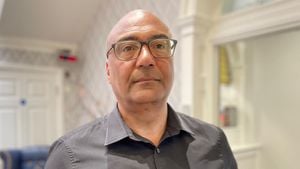Bangladesh's political scene has seen another turbulent turn as the High Court acquitted all accused involved in the infamous 2004 grenade attack. This landmark decision came on December 1, 2024, after the High Court reviewed the appeals and death references related to the case. The attack, which targeted an Awami League rally on August 21, 2004, left 24 people dead and around 300 more injured, significantly impacting Bangladesh's political climate and leading to prolonged legal battles.
The High Court’s bench, consisting of Justices AKM Ashaduzzaman and Syed Enayet Hossain, based their ruling on issues related to the charges and evidence presented during the trial. They highlighted flaws in the original charges and deemed the supplementary chargesheet, primarily derived from the controversial confession of Mufti Abdul Hannan, as "illegal". This confession, according to the court, was the keystone of the trial court's verdict, which led to the death sentences for 19 individuals and life sentences for others, including Tarique Rahman, the son of former Prime Minister Khaleda Zia.
During the session, the court emphasized the absence of witness testimony directly linking any of the accused to the act of throwing grenades during the attack. Shishir Manir, one of the defence lawyers, reiterated this point, arguing, "No one has been sentenced based on a second confession. This is unprecedented in the history of our justice system."">
The 2004 grenade attack meant to harm Sheikh Hasina, the then opposition leader, but she narrowly escaped the explosion. The ensuing chaos and violence shifted the gears of Bangladeshi politics, with the 2008 convictions intended to hold various political leaders accountable. The Dhaka First Speedy Trial Tribunal sentenced 49 individuals to various penalties back then, but the High Court's recent vacillation now casts these prior rulings in doubt.
The ruling ignited discussions over political motivations behind the prosecution. Advocates from the Bangladesh Nationalist Party (BNP), including spokesperson Mirza Fakhrul Islam Alamgir, asserted this acquittal proved the accusations were fabricated for political gain. He commented, "This verdict shows the past rulings were fundamentally politically motivated, aimed at dismantling our party and ensuring Tarique Rahman's political exile."
Rahman and others had been sentenced under the Penal Code and the Explosive Substances Act. Notably, 19 individuals had been sentenced to death, including former state minister for home affairs Lutfozzaman Babar. Eleven police and military officials also received various prison sentences. Yet, the recent judgment renders those convictions void.
Following the acquittal, Rezaul Karim, another defence attorney, claimed, "The ruling is monumental for justice. It underlines the necessity for substantial evidence instead of relying solely on confiscated confessions. Justice has prevailed today," he stated, echoing the sentiments of many who viewed the previous legal proceedings with skepticism.
Tarique Rahman, currently residing abroad, had been labeled as one of the main architects behind the attack, but the High Court's decision directly undermines these allegations. His legal team emphasized the lack of concrete proof as the basis for their appeals, culminating with the High Court's recognition of the judicial overreach involved with prior convictions.
Political experts indicate this acquittal could potentially reshape the dynamics within the BNP and the wider arena of Bangladeshi governance. Observers assert this might embolden the opposition parties, facilitating potential dialogues around future elections.
The background to the original incident has been laden with political tension. The Awami League, led by Prime Minister Sheikh Hasina, effectively utilized the grenade attack narrative to consolidate its power under claims of national security, portraying the BNP as intertwined with violence and conspiracy. The attack highlights the level of animosity and contention present at the time.
The original trial wrapped up after 14 years of conflicting testimonies, legal maneuvers, and accusations of state machinery being involved. Back then, it was asserted the grenade attack had been fed by political motivations aiming to eliminate the Awami League's leadership. The High Court's recent ruling indicates substantial cracks within past judicial operations dealing with high-stakes political allegations.
Critics of the acquittal have expressed concern over possible repercussions for law and order, questioning if this ruling sets a precedent for future politically charged cases. Several former senior officials associated with the investigation have criticized the ruling, arguing it fails to deliver justice to the victims’ families or address the violent history embedded within the case.
The ramifications of this decision echo beyond mere legalities. This case highlights issues of political accountability, state involvement, and the challenge of upholding democratic integrity amid deep-seated rivalries. The legal decision will undoubtedly stir waves throughout both the domestic and international corridors of power, as onlookers await the government’s next steps.
Meanwhile, various parties are rapidly mobilizing to capitalize on the shifting landscapes of influence. With global organizations and local political analysts previously voicing their concerns about governance and human rights, many now point to the ripple effects of decisions like the recent acquittals as indicators of governance potential or pitfalls.
The fallout is bound to reverberate through Bangladesh's political fabric as the nation casts its gaze forward, processing how the legal, political, and social dimensions converge within the framework of the 2004 grenade attack's historical and contemporary narratives.
This unprecedented acquittal serves as both a conclusion and the stirring of fresh debates about justice, power, and politics as Bangladesh navigates the moments of introspection and reformation. The attention firmly rests with the legal system as the interactions between law and politics continue to weave the complex narrative of Bangladesh's destiny.



